How finding the right hobbleskirt Coke bottle might just leave you smiling!
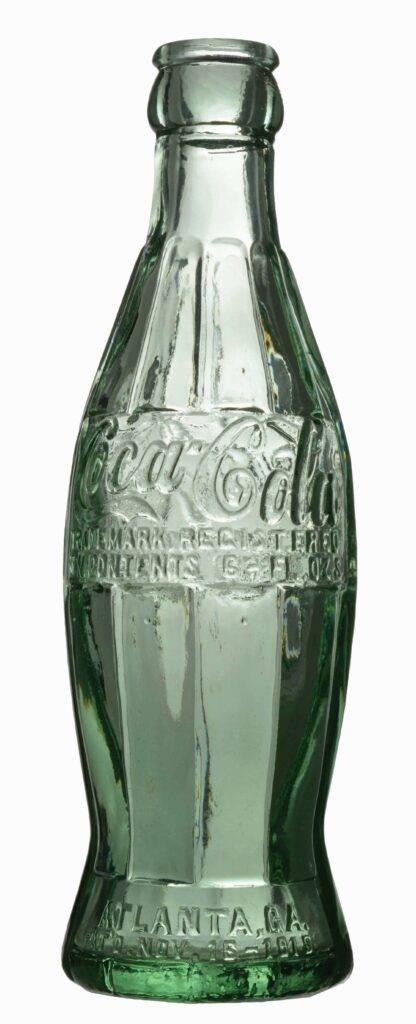
Photo credit: Julien’s Auctions via cbsnews.com.
When a very common-looking “hobbleskirt” Coke bottle sold at auction for $240,000.00 in 2011, people scrambled out to their barns, praying they’d find a case full of them stashed up in the rafters. The bottle was the prototype for the most iconic American advertising container in history—the blue-green “hobbleskirt” Coke bottle, designed and patented in 1915.
Layers of research, proof, and evidence of the bottle’s authenticity were required to command a realized price of that magnitude. It’s not likely that a Coke bottle will ever achieve that price again, since it was a “discovery” of an original prototype. But still, hobbleskirt Coke bottles are sought after by thousands of collectors all over the country for various reasons.
The “hobbleskirt” Coke bottle was named after the hobble skirt, a long skirt popular from 1905-1915 that narrowed as it reached the ankle, thus “hobbling” the poor woman who attempted to wear it. It was a short-lived style, but oddly enough, a bottle style was named after it centuries later.
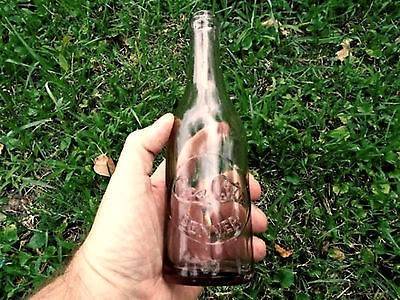
Some of the most valuable collectible Coke bottles are the “straight-sided” soda bottles or modern commemorative bottles. Those two categories of Coke bottles need an article of their own. For now, I’m concentrating on hobbleskirts because you are more likely to see them at flea markets or garage sales and wonder if you should buy a box full of them. Chances are you shouldn’t unless you’ve got plenty of storage space and don’t mind stashing them away. But, if you have an idea of what might make one valuable, it will give you a better chance of finding a good one!
The value of an original hobbleskirt Coke bottle is determined almost entirely by its rarity. Rarity is mainly decided by the bottle’s origin; the city where each bottle was made is embossed on the base.
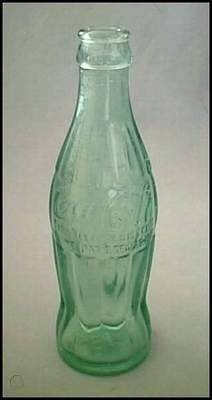
Collecting hobbleskirt Cokes is a regional pursuit. What is valued in New York will not be as valued in Texas. If you go to the Facebook Group for “Hobbleskirt Coke Bottle Collectors,” you will find avid collectors exchanging information, photos, and “want lists.” One collector on the site, Mark Clark, offered me several insights.
He said, “I live in Indiana. Three bottles known as ‘the Triplets’ up here are very hard to find. They are dated 1915 hobbleskirts from Rochester, Peru, and Kokomo. Rochester and Peru bottling plants did not survive the Depression and were bought out and/or conglomerated. So, their dated 1915 bottles are extremely hard to find because so few were made.”
He also explained that in the hobby, hobbleskirts with the embossed date “Nov. 16, 1915” around their waists are referred to as “Thanksgiving Cokes,” and ones dated “Dec. 25, 1923,” are referred to as “Christmas Cokes.” But beware of fakes! Both the 1915 and 1923 hobbleskirts were recently reproduced. These have no value to a collector of authentic hobbleskirt Coke bottles.
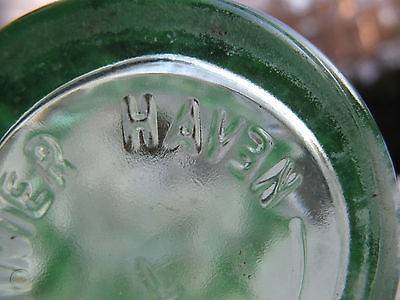
It is not difficult to differentiate between an original and reproduction if you hold them side by side. The copies are made of modern “clean” glass, with no impurities or seed bubbles in it, and the lettering on the bottom is in a smaller, finer font.
There are more than 1,000 different bottling locations embossed on hobbleskirt Cokes’ bases, with avid collectors looking to collect one in each patent type.
The four main collectible hobbleskirt patent types you will see embossed on the waist of each bottle are:
1 Pat’d NOV. 16, 1915 (1917-1930)
2 Pat’d DEC. 23, 1923 (1928-1938)
3 Pat. D-105523 (1938-1951)
4 US PAT OFFICE (1951-1967)
There are a few odd variations of hobbleskirt Cokes to keep an eye out for. One bottle is not the typical Coca-Cola greenish-colored glass (referred to as Georgia Green) but is instead a beautiful cornflower blue-colored glass. These were made by the Reed Glass Co. in Rochester, New York, in the 1920s and show up in various northeastern U.S. states.
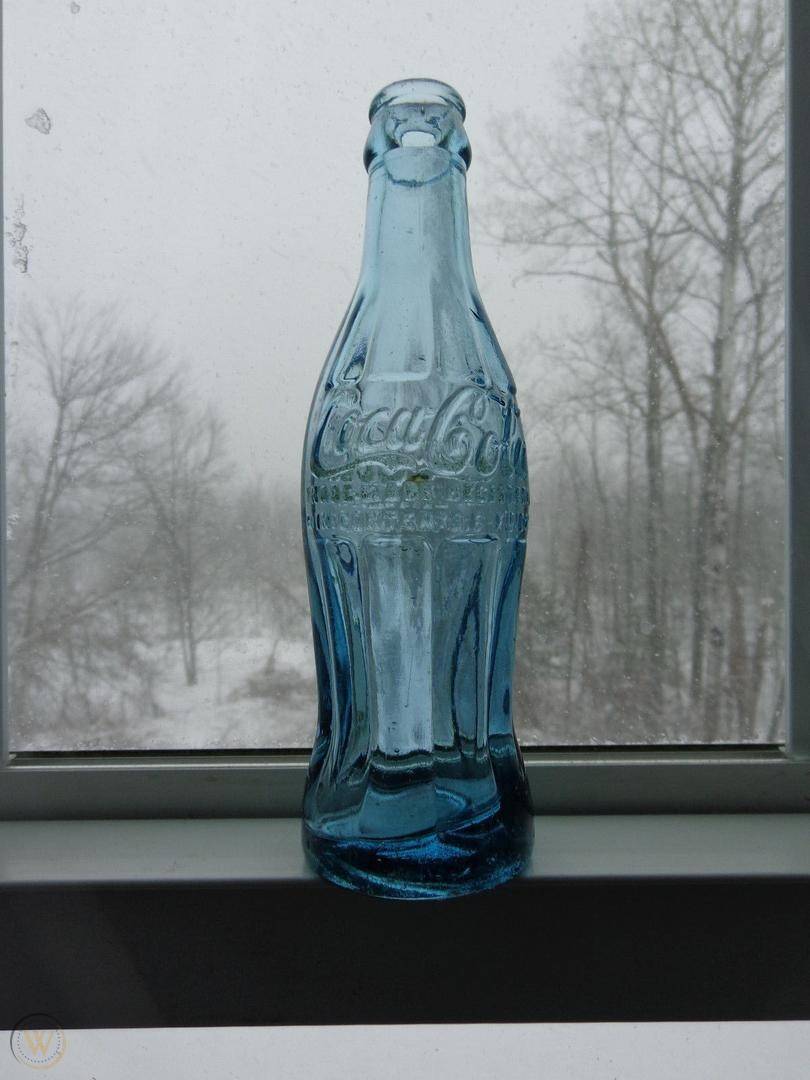
Another variation to watch for is what collectors call “Nuked” Coke bottles. These bottles have been put into a machine that exposes them to intense ultraviolet light, which changes the color to an odd, deep ginger-ale color. The medical field uses these machines to sanitize equipment, but bottle collectors and dealers also use them to change clear glass to a dark purple color. The machines can also change “Coke bottle green”-colored glass into different shades of, frankly, unattractive brown glass, which a novice collector may incorrectly identify as a rare variant. There is a debate in the bottle-collecting hobby about the ethics of this practice. Usually, a dealer will tell the buyer that the bottle has been “treated” or “altered” to enhance the color. But all too often, someone will pay a high price for a bottle they think is a rare color or a “one-in-a-million” rarity, only to find out after the fact that the bottle has been altered. So keep your eyes open for that!
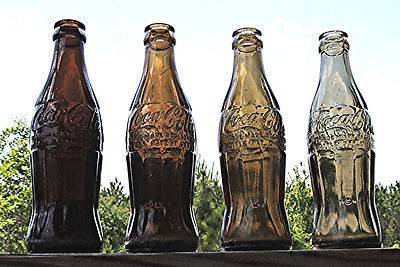
The good news: if you’re at a garage sale and see a pile of hobbleskirt Cokes, you know you can check WorthPoint’s enormous price guide to match embossed city names with the valuable rarities shown on the site. Collecting hobbleskirt Coke bottles is a fairly new field, so there is still a good chance of finding “fresh-to-the-market” bargains that have been stacked in old wooden soda crates just waiting to be found!
Bram Hepburn collects 19th-century New England bottles and glass, having spent the last 30 years digging and diving for bottles in New England and upstate New York. Bram is the author of the book The Field Guide to American Trash. You can send an email to him at Bramiam@aol.com.
WorthPoint—Discover Your Hidden Wealth®
The post Have a Coke and Smile first appeared on WorthPoint.